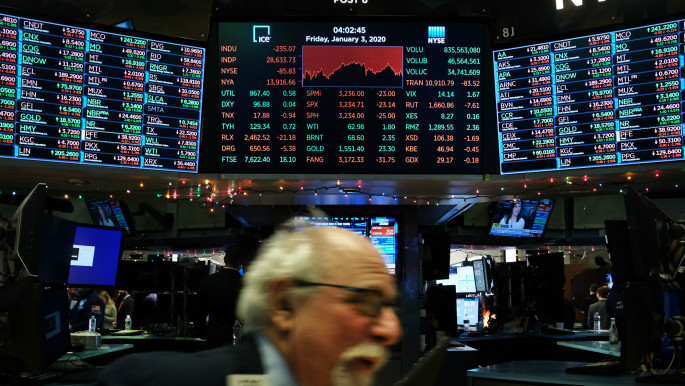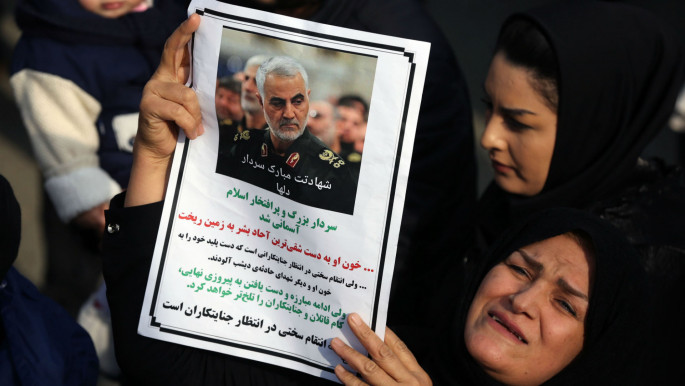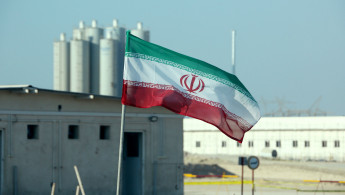Is Iran's nuclear deal still viable?
Having started to break away from the JCPOA terms since July 2019, one restriction has been ignored by Iran every two months since then. First it was the operational aspects of its nuclear programme, then the enrichment capacity, extent of enrichment and then nuclear research and development.
However, having announced that Iran would set its limits based on its technical needs, Tehran is still within the general outline of the deal and is not working on nuclear weapons yet.
It has only degraded its adherence to various checks. Not only that, regular checks can still be carried out by the International Atomic Energy Agency inspectors as Iran will provide access to its facilities.
So even though it has moved away from the JCPOA mechanism, Iran is not producing weapons-grade uranium, remaining below the threshold required for a nuclear weapons programme.
 |
Iranian Foreign Minister Javid Zarif has stated that Iran would continue to work with international nuclear agencies and will return to JCPOA limits once all sanctions are removed from the country |  |
In fact, hinting that the move is reversible, Iranian Foreign Minister Javid Zarif has stated that Iran would "continue to work with international nuclear agencies and will return to JCPOA limits once all sanctions are removed from the country."
 |
|
| Read also: After Soleimani's assassination, Iran's behaviour will determine the global oil price game |
According to experts Eric Brewer and Ariane Tabatabai, Iran's policy is "designed to gradually build pressure on the United States and Europe by targeting key pillars of the agreement, rather than racing for a short-notice breakout capability."
Contracted between Iran, the US, China, Russia, Germany, France, Britain and the EU in July 2015, the deal placed limits on Iran's uranium enrichment programme until 2030 in exchange for removal of economic sanctions.
Now the question is that is the JCPOA deal still viable, and can other signatories like Russia and China help it survive?
Clearly, their intention is not to abandon the deal.
Basically, the JCPOA became unworkable as Washington abandoned the deal on May 8, 2018 as it felt that the checks on Iran's ballistic missile programme were inadequate, and that the provisions of the JCPOA were not effective as they were temporary.
Since then, US-Iran ties have been in a steady state of decline and Tehran has faced three more sets of sanctions since then to make it negotiate a more stringent new deal.
But, the rest of the signatories continue to recognise the old deal and keep it alive in theory with the hope that US-Iran bilateral issues will get settled.
The JCPOA will remain alive as long as Iran upholds some of the commitments. The deal cannot be said to be 'active' but it is not null and void unless other countries like China, Russia and the European countries take action to withdraw from the JCPOA.
 |
The rest of the signatories continue to recognise the old deal and keep it alive in theory with the hope that US-Iran bilateral issues will get settled |  |
But that is not going to happen. For instance, Russia remains committed to the nuclear deal even now and its foreign ministry says that the deal "remains a global asset". In fact, the US and Russia have a similar arms control agreement which will expire in 2021 unless both parties decide to extend it. Therefore, with modifications, the JCPOA may still be practical.
While on a visit to Russia, Germany's Chancellor Angela Merkel has also agreed, saying that "everything must be done" to save the Iranian nuclear accord. Russian President Vlamidir Putin described it as "tremendously important."
Resolving to save the deal, both leaders have aligned their goals in order to bring about an urgent de-escalation in the Middle East.
In fact, the JCPOA could have contributed to stability in the Middle East and helped enhance trade connectivity and economic growth of all the GCC states. The risk of war has cast a shadow on the entire region even as it seeks to diversify away from oil revenues to explore tourism and new business opportunities.
Most importantly, the fact remains that the UN Security Council had unanimously passed a resolution endorsing the JCPOA deal and asked all UN member states and its regional and global organisations to actively support its implementation.
The falling apart of the JCPOA harms the credibility of this important international security institution. Furthermore, the JCPOA was a positive step towards nuclear non-proliferation.
Meanwhile in Europe, the leaders of Germany, France and UK have released a joint statement requesting Tehran to "withdraw all measures that are not in line with the nuclear agreement." At the same time, the joint statement called on all the 'players involved' to show restraint and de-escalate even as Iran announced its fifth move towards reduction in nuclear commitments.
 |
|
| Read also: The significance of Qasem Soleimani's assassination |
Taking an active role, the EU Commission President Ursula von der Leyen has said that her foreign affairs chief Josep Borrell will reach out to all the participants in the JCPOA deal in order to save it "despite a rollback in commitments from Tehran."
Having organised a special meeting of the EU foreign ministers to discuss the ongoing crisis, Borrell invited Javad Zarif to Brussels.
In the meantime, Iran also looks towards China, its largest trading partner. Asking Beijing to play a constructive role and help reduce tensions caused by Soleimani's assassination, Iranian Ambassador to China, Mohammad Keshavarzaddeh recently said, "We hope China can use international platforms, such as the UNSC, to play a constructive role in the current situation."
However, applying its policy of "maximum pressure", the Trump administration prefers a new deal. Pushing the JCPOA into redundancy, economic sanctions imposed on Iran by the US have made it hard for other nations to continue trade with Iran and this made them lose their clout.
Only China and Russia have retained some relevance to the situation as they continued trade by disregarding sanctions as much as possible.
Nevertheless, Iran has lost almost 90 percent of its exports and the 'economic war' waged by Washington has already cost it $200 billion. In addition, the country has faced widespread protests twice as shortages of food, medicine and essential supplies set in.
Right now, the JCPOA remains viable and can be resuscitated if Washington agrees. Notably, Iran has not drawn away from the inspection provisions yet, and nor has it increased the levels of uranium enrichment beyond its 'practical needs'. Once that happens, the deal will not survive much longer.
Sabena Siddiqui is a foreign affairs journalist, lawyer and geopolitical analyst specialising in modern China, the Belt and Road Initiative, Middle East and South Asia.
Follow her on Twitter: @sabena_siddiqi



